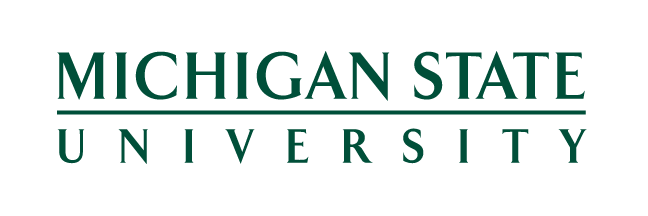
research with consequence
Understanding the effectiveness of school and district reforms requires a targeted research agenda that assesses not just whether reforms improve outcomes, but specifically what kinds of strategies employed by states, districts and schools are most effective, and for whom, when, and where. A comprehensive agenda such as this requires more than a stand-alone research project. Within the structure of a policy lab, we are able to coordinate projects to examine a fuller array of interrelated questions and look at educational issues from multiple angles.
EPIC is honored to work closely with Michigan’s leaders to answer the most pressing education policy questions the state faces.
Partnership Model
The Partnership Model is Michigan’s strategy to improve outcomes in its lowest performing schools, and a key component of the Top 10 in 10 strategy. The state has turned to EPIC to evaluate these efforts in real-time, providing actionable information to monitor how the policy is working for schools and districts.
Competency-based Education
Michigan school districts are making a shift toward a more individualized approach for students that emphasizes skill and subject mastery. EPIC is partnering with districts piloting these approaches to learn how this is working, where and why.
Read by Grade Three
Read by Grade Three is Michigan’s large-scale early literacy and retention policy, which is one of the most consequential education policies in the state to date. EPIC is working with state partners to understand the impact on student outcomes, implementation, and cost effectiveness in real-time as the policy fully takes effect.
COVID-19 Education Policy
Education faces unprecedented challenges with the COVID-19 pandemic. Every state in the nation suspended face-to-face instruction with the outbreak of the virus in the United States in March 2020. Now states, districts, and schools across the country are grappling with how to resume schooling safely while fulfilling the needs of their students and communities.
Teacher Workforce
Teachers are the most important school-based input into students’ educational success. EPIC works closely with state and local policymakers to ensure questions of teacher workforce are infused throughout every research project so students have the opportunity to learn from high-quality educators.
explore the research
EPIC Policy Briefs
The Education Policy Innovation Collaborative publishes Policy Briefs on a rolling basis in conjuction with our partners.

The Shifting Landscape of Alternative-Route Teacher Certification in Michigan
This brief examines how the use of Interim Teaching Certificates in Michigan has evolved as alternative-route teacher preparation programs expanded throughout Michigan.

Viral Change: Trends in Michigan Teacher Attrition and Mobility Before and During the COVID-19 Pandemic
This policy brief summarizes selected findings from the accompanying working paper which examines how teacher attrition and supply may have shifted after the onset of the COVID 19 pandemic.
EPIC Working Papers
The Education Policy Innovation Collaborative publishes Working Papers on a rolling basis in conjuction with our partners.

Viral Change: Trends in Michigan Teacher Attrition and Mobility Before and During the COVID-19 Pandemic
This working paper uses administrative data on more than 140,000 Michigan traditional public and charter school teachers in an interrupted time series (ITS) framework to understand how teacher attrition and supply may have shifted after the onset of the COVID 19 pandemic.

The Role of School Climate in School Turnaround
In this working paper, we examine the extent to which elements of school climate may have contributed to the effects of a turnaround intervention in Michigan.
Other publications

English Learner Funding: How Does Michigan Compare to Other States?
A resource created to highlight how Michigan English learner funding compares to the rest of the country.

The Effect of Teachers’ Union Contracts on School District Efficiency: Longitudinal Evidence From California
While the effect of teachers’ unions on school districts continues to be debated, the research literature provides few definitive conclusions to guide these discussions. In this article, we examine the relationship between teachers’ union contracts and school district efficiency.

To What Extent Does In-Person Schooling Contribute to the Spread of COVID-19? Evidence from Michigan and Washington
The decision about how and when to open schools to in-person instruction has been a key question for policymakers throughout the COVID-19 pandemic. The instructional modality of schools has implications not only for the health and safety of students and staff, but also student learning and the degree to which parents can engage in job activities. We consider the role of instructional modality (in-person, hybrid, or remote instruction) in disease spread among the wider community. Using a variety of regression modeling strategies , we find that simple correlations show in-person modalities are correlated with increased COVID cases, but accounting for both pre-existing cases and a richer set of covariates brings estimates close to zero on average. In Ordinary Least Squares (OLS) specifications, in-person modality options are not associated with increased spread of COVID at low levels of pre-existing COVID cases but cases do increase at moderate to high pre-existing COVID rates.
presentations

EPIC Managing Director Provides Testimony to the Michigan House of Representatives Subcommittee
Emily Mohr, Managing Director of EPIC, Provided Testimony to the Michigan House of Representatives Subcommittee

2025 Association for Education Finance and Policy (AEFP) Annual Conference – EPIC Affiliated Sessions
DATE: March 13-15, 2025
Location: They Mayflower Hotel; Washington, DC

EPIC Presents Partnership Turnaround Study Findings at State Board of Education Meeting
EPIC presents findings from the ongoing Partnership Turnaround study at Michigan’s State Board of Education meeting on April 9, 2024.

EPIC Interim Associate Director Presents Findings From Teacher Shortage Study at P20 Council Meeting
At a recent P-20 Advisory Council Meeting, the Interim Associate Director of EPIC, presented findings from their study on Teacher Shortages and Progress Through the Teacher Pipeline.

EPIC Interim Associate Director Director Presents Benchmark Assessment Findings at P20 Council Meeting
EPIC Associate Interim Director, Tara Kilbride, presented findings from their recent report on Michigan’s 2022-23 Benchmark Assessments at the P20 Council Meeting.








